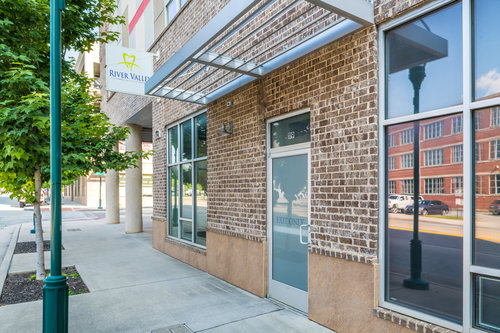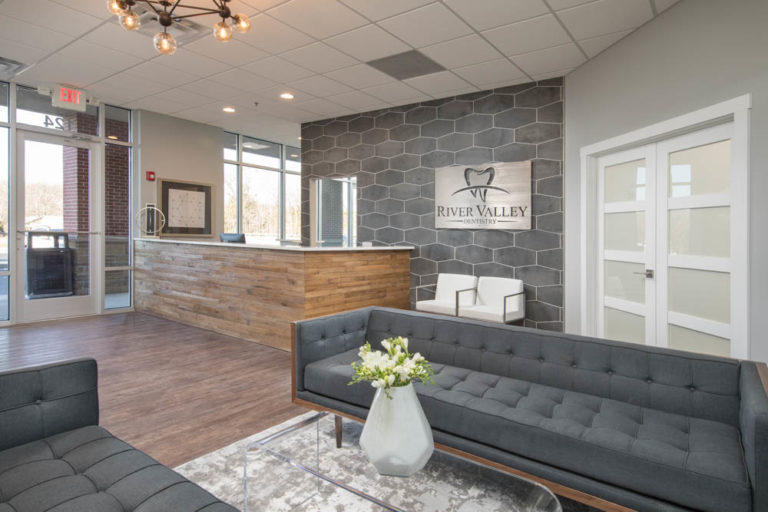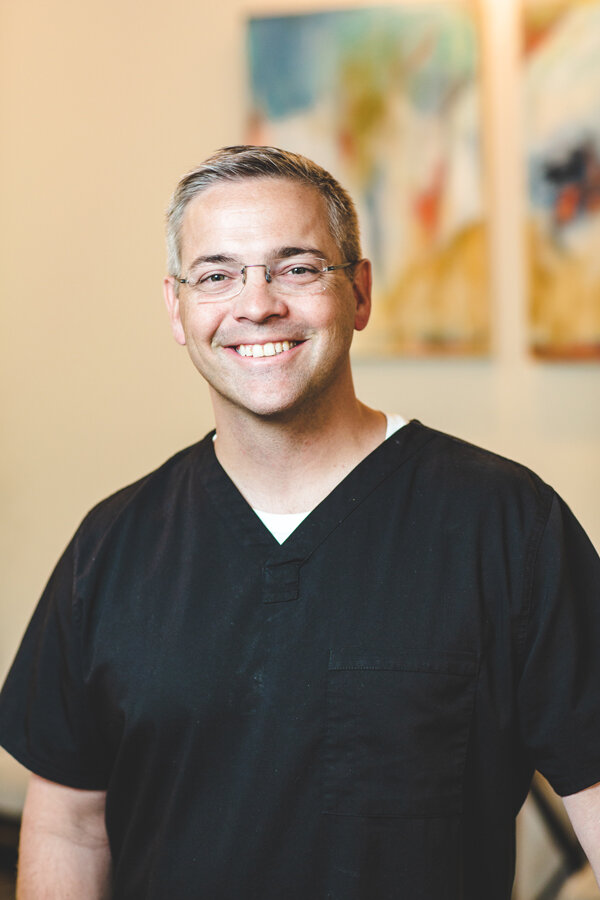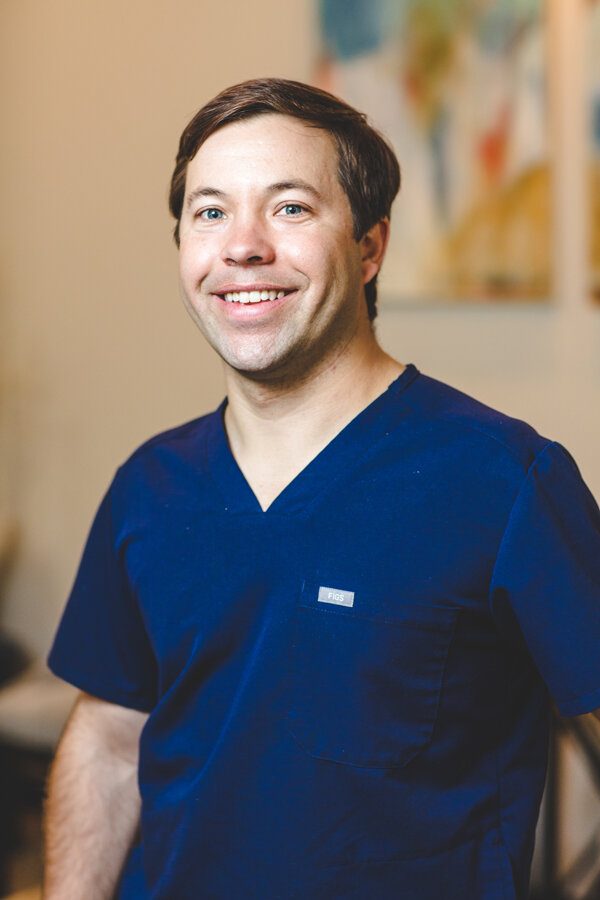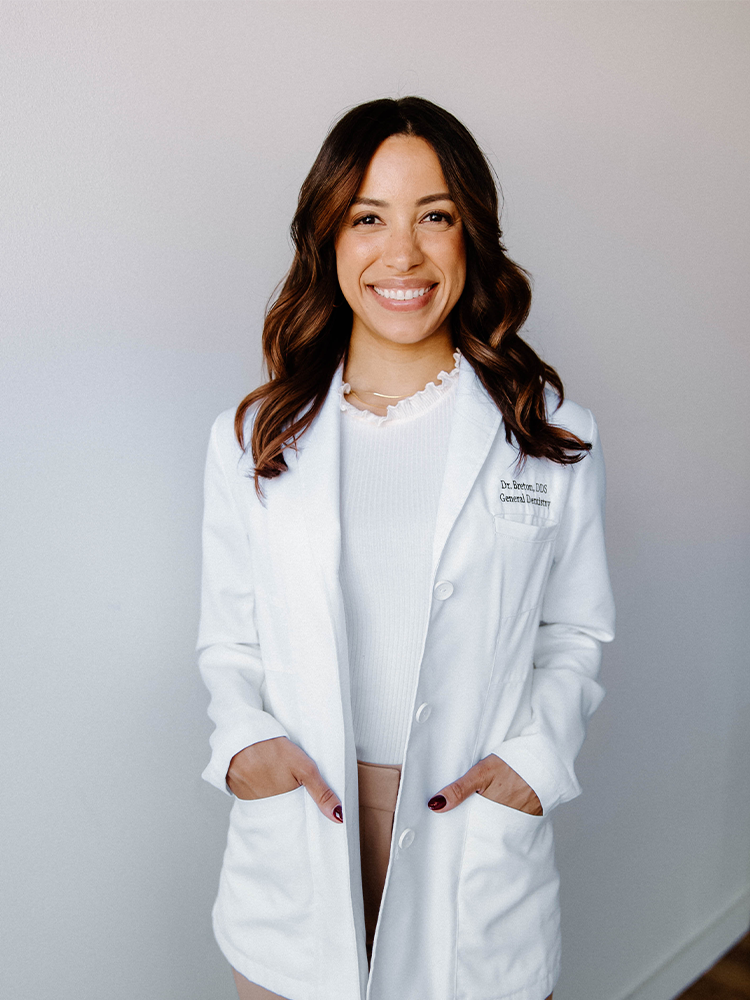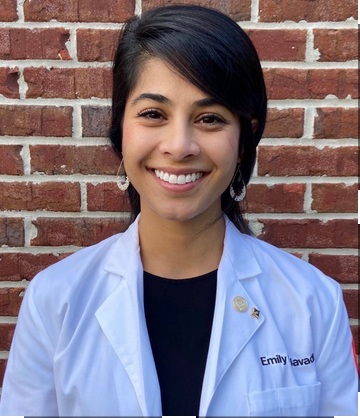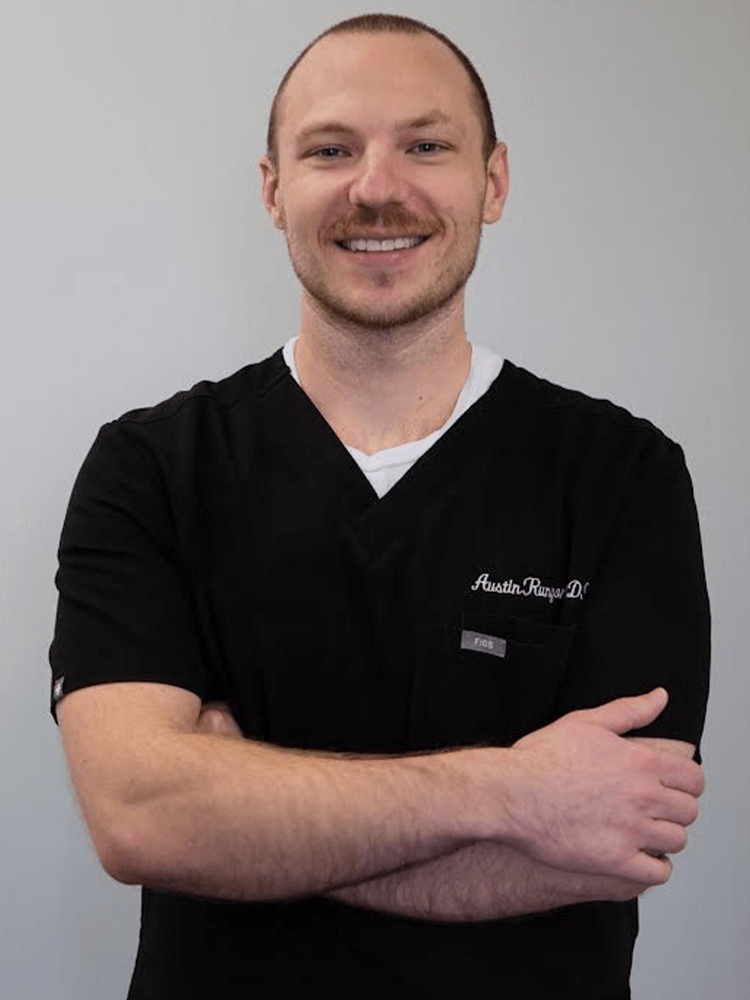How Does a Cosmetic Dentist Fix Your Teeth?
What’s the first thing you see when meeting someone new? Oftentimes, it’s their smile. And if someone doesn’t have a perfect smile, it can be a source of insecurity for them. Luckily, there are ways to help you fall in love with your teeth and cosmetic dentists are here to help!
Cosmetic dentistry is dentistry aimed at creating a positive change to your teeth and your smile. Whether your teeth are chipped, stained, misaligned, or worn, cosmetic dentistry can improve your smile and your confidence. Here are just a few ways cosmetic dentistry can help fix your teeth.
Enamel Abrasion
This procedure is a way to remove discoloration. The procedure uses a fine pumice in a micro-abrasion machine to remove surface stains. While this process doesn’t work for stains inside the tooth or intrinsic stains, it works wonders to remove stains caused by things like tobacco, wine, coffee and berries.
Dental Veneers
Veneers, the gold standard for cosmetic dental procedures, are thin, custom made shells of tooth colored porcelain that cover the front surface of the teeth. About a half- millimeter of enamel from the tooth is gently shaved and then an impression is taken. Then, the impression is sent to a dental lab for custom veneers.
While you’re waiting for your permanent veneers, you’ll have temporary ones. Once you get your permanent set, they’ll be cemented to the front of the teeth and you can change the size, color, shape or length.
Teeth Whitening
Whitening your teeth is one of the most common and quickest ways to change your smile. This is the perfect solution for someone who doesn’t need anything more than a bit of brightening for their teeth or someone who isn’t quite ready for a huge commitment.
Fortunately, teeth whitening can be done in a dentist’s office, or it can be done at home. However, it’s wise to get the bleach from your dentist to make sure you’re getting the safest and best product.
Dental Bonding
Dental bonding is a great option for people who have deeply stained or chipped teeth. During this procedure, a tooth- colored, putty- like resin is applied to the tooth and hardened with an ultraviolet or laser light, bonding the material to the tooth. Your dentist can then trim, shape and polish it.
Invisalign Braces
These are perfect for not only kids, but adults as well because no one can tell you’re wearing them! They’ll help you get the perfect smile that you’ve always wanted. While they’re great for straightening teeth, they also help with chronic pain caused by misalignment, such as headaches.
Whatever you want to do to improve your teeth, we’ve got you covered. We want all of our patients to be confident in their smiles. If you have any questions about different procedures used for cosmetic dentistry, please reach out to us at (423) 875-0600. We’ll get you set up with an appointment and our team will get you the right process for your needs.
Sleep Apnea and Oral Appliances: How Dental Sleep Medicine Can Help You
When you think about services your dentist can provide, you’ll generally think of tooth cleaning, extractions and root canals. But did you know your dentist also may be able to help you with sleep apnea? “Dental sleep medicine” is a rapidly evolving field. One of the most prominent areas of dental sleep medicine is sleep apnea treatment.
Sleep apnea: What is it?
Sleep apnea (sometimes spelled as “sleep apnoea”) is a condition where the inflicted person’s breathing is restricted while they sleep, causing short periods of time where their breathing stops entirely or becomes very shallow during the night, often after snoring. Many people suffering from sleep apnea are unaware they have it, but it can have significant effects on quality of life. Many people who suffer from sleep apnea will wake up after a full night’s sleep without feeling well-rested at all. Going a long time without treatment also can have dramatic medical consequences, such as increasing the risk of heart or respiratory disease.
How can your dentist help?
If you are familiar with sleep apnea, you might associate it with Continuous Positive Airway Pressure (CPAP) machines. These machines are often very effective in treating sleep apnea, but they can be loud, uncomfortable and difficult to travel with.
One effective method of treating sleep apnea is with an oral appliance. These are fitted to your teeth like a mouthguard and comfortably hold your jaw forward to keep your airways unblocked while you sleep. They may not be effective in every case of sleep apnea, but the appliances are silent, more comfortable, easier and more convenient compared to CPAP machines or other electronic breathing equipment.
The right sleep apnea device for you.
When you are looking for an oral appliance to treat your sleep apnea, it’s important to find a high-quality device and have your dentist professionally fit it to your teeth. Depending on the device, this can be done in a short period of time in a single visit, or your dentist may need to take the measurements and have it ready for you on your next visit.
Some oral appliances are available over the counter, but these aren’t FDA approved for treating sleep apnea—it is important to involve a dental professional. Non-fitted, unapproved devices may be uncomfortable and ineffective. In some circumstances, it may even make your symptoms worse.
Oral appliances are just one method of treating sleep apnea. CPAP machines, other breathing equipment, surgery or weight loss also might help return you to restful sleep. You may want to begin by consulting your primary care physician to explore your options first. Then, if it looks like a dental device might help, a dentist trained in dental sleep medicine can help fit an oral appliance and tell you the pros and cons of different kinds.
Everyone deserves a good night’s sleep. If you’re diagnosed with sleep apnea and your doctor determines an oral appliance is a viable option for you, we can help. Give us a call at (423) 875-0600 to learn more about oral appliances for sleep apnea or any other dental concerns.
Stressed About the Dentist? Don’t Be Scared- Let’s Talk
If you get anxious about going to the dentist, you’re not alone. Not by a long shot. Some studies show nearly three-fourths of American adults experience anxiety or outright fear when they even think about visiting the dentist. About 1 in 10 Americans experience enough fear to classify it as a phobia. It’s okay. We know going to the dentist can seem scary!
But avoiding dental care as a result of dental anxiety can result in serious consequences for you and your teeth. Even if you’re nervous about going to the dentist, it’s extremely important to do what’s necessary to keep your mouth clean and healthy.
We want all of our patients to be as comfortable as possible when they visit our office, so we do everything we can to give our guests a comfortable, calming environment. But there are a few things you can do on your own to help make your visit a little easier.
1. Plan your appointment well
Yes, life is stressful. But you don’t need the stress of life to cause extra anxiety during your dental appointment. If you’re already nervous about your visit, it won’t help to carry in the anxiety of a bad day at work. Schedule your appointment for a day when you don’t have anything big going on outside of our office. If you have a dental appointment scheduled, try to keep the rest of the day clear. That way, your mind can be rested and fresh for your procedure.
2. Take deep breaths
We all know that deep, relaxing breaths can help reduce our stress, but sometimes we need a reminder. If you’re feeling anxiety about your visit as you drive to our office or you begin feeling fear as you sit in our waiting room, begin by taking a deep breath in, holding it for a second, and slowly letting it out. That’s the most basic start toward relaxation, and it works for almost any situation. Continue relaxing breaths throughout your appointment.
3. Bring a friend
Bringing someone you trust to our office with you is one of the best ways to reduce the stress of your dental appointment. Not only will your companion’s presence be comforting, but that person can help make sure everything is going well and get you home safely if you’re under the effects of anesthesia. Pleasant conversation can distract you from your nervousness and help pass the time more quickly.
4. Talk with your dentist
If you’re stressed about your upcoming visit to our office, one of the best things you can do is talk with us about it. Having a clear understanding of what your visit will be like – even visualizing what will occur during your appointment – can do wonders. It’s possible we can make special accommodations to make things more comfortable for you. You’re not the first person who’s been worried about a visit to your dentist’s office, and you won’t be the last! We’re here to help.
Whatever the cause of your anxiety over a visit to our office for your cleaning or other dental procedure, we can manage it together. We want all our patients to be as comfortable as possible, and we want you to look at your visit to the dentist as a good thing. If you have any questions about a dental procedure, or if there is something we can do to ease your worry, give us a call at (423) 875-0600. We’ll work as a team to keep your next visit to the dentist stress-free!
The Truth About Dental Abscesses
What is an Abscess?
An abscess is an infection. There are two types of dental abscesses. A periapical abscess, which happens at the root of a tooth and a periodontal abscess which happens in the gum. A periapical abscess can occur when decay gets into the nerve chamber, killing the nerve and pulp tissue. Sometimes a traumatic injury or crack in a tooth can damage the delicate nerve inside, resulting in the death of the nerve. Periodontal disease is a chronic gum infection that can weaken the bone and may result in bone and tooth loss if untreated. It can also trigger widespread infection throughout the mouth. Regardless of where in the mouth the infection occurs, if it goes untreated for too long, a pus-filled area forms and that is called the abscess.
What are the Symptoms?
Symptoms of an abscess include:
- Severe pain and a throbbing toothache that can radiate to the jawbone, neck, or ear
- Hot or cold tooth sensitivity that lingers
- Pressure sensitivity
- Fever
- Facial swelling
- Bad breath
- Soreness in your neck and jaw from swollen lymph nodes
- Rotten or sour taste in your mouth
It’s important to mention that sometimes an abscess causes no pain, or sometimes the pain goes away suddenly. The discomfort of a toothache is usually caused by the buildup of fluid or gases inside the tooth as the nerve dies. Sometimes the infection works its way into the gum, creating a bubble on the gum. Once this bubble pops, the infection begins to drain into the gum tissue and mouth, and the pain goes away. This doesn’t mean that the infection is getting better, it just means the pressure is relieved.
Treatment
Once an abscess has been diagnosed, there are a few methods of treatment. Antibiotics can be prescribed to destroy the bacteria, but the central issue of an infected tooth, dying nerve, or periodontal disease must still be dealt with.
If your abscess is due to a dying nerve, a root canal may be recommended to clean out the infected tissue, shape the canals and place a rubber-like material in the canals to seal them. A crown or cap might be put over the tooth to help preserve the remaining tooth and prevent further breakage.
If the infection has gone too far and affected the root of the tooth, an extraction might be suggested, and an implant with a crown on top may be put in its place.
If your abscess is due to periodontal disease, root planing and scaling may be done. This is a deep cleaning done with anesthetic and specialized instruments. Sometimes lasers are used to help sterilize the pocket to help prevent bacteria from reinfecting the area.
Preventing an Abcess
While you can’t always avoid a sudden traumatic impact causing a nerve to die, there are plenty of ways you can prevent decay-related infections and periodontal disease:
- Visit your dentist for regular checkups and professional cleanings
- Brush and floss your teeth at least twice a day
- Replace your toothbrush every three or four months and never, ever share it with anyone
- Drink tap water or fluoridated bottled water
- Watch your sugar and carbohydrate intake because they are bacteria’s favorite food
- Use a mouth rinse before bed so it can sit on your teeth overnight
With a little care, you can help prevent an abscess and periodontal disease before they develop, saving yourself the inconvenience and pain of a toothache and the expense of major treatment.
Taking Care of Your Teeth as You Age
As our bodies age, we know we’ll have lots of very natural physical challenges, and that includes changes in our teeth and mouth. Those changes can be unsettling – even frightening – and day-to-day dental hygiene can become difficult. But if these new challenges are met head-on, there’s no reason seniors can’t keep gums and teeth healthy well into their later years!
As you grow older, make it a point to stay aware of the new dental challenges you face and you’ll be much happier with your dental health – and with life in general!
Day-to-Day Challenges of Senior Dental Hygiene
Many common day-to-day changes seniors face in caring for their teeth fall into two categories: physical difficulties and medication side effects.
General physical lifestyle changes you experience as a senior may seem as though they are unrelated to dental care, but they can have a huge impact on your teeth. For example, if you develop arthritis, it may be more difficult for you to properly brush your teeth every day. If so, you may find it easier to use an electric toothbrush, which requires less precision and force. Similarly, you should consider using a water flosser if flossing has become difficult.
The side effects of some medications many people begin taking as seniors can cause dry mouth. This innocent-sounding condition can have serious consequences for dental health over time, because saliva is a major part of how your body keeps your teeth clean. A dry mouth is a perfect environment for germs to grow. You can manage this challenge by increasing your fluid intake and chewing sugarless gum to stimulate saliva production.
Look and Feel Natural with Dentures
Many people, despite their best efforts and good dental habits over a lifetime, will find they have significant damage to their teeth as they age and may want to consider dentures to help them with eating and speaking.
Dentures come in a variety of forms, but all of them are designed to make your mouth look and feel normal after tooth loss. If you only have a few good teeth left, you may decide to pull them and go with full dentures. If you’ve only lost a tooth or two, you may not need a full set of dentures. Partial dentures can give you strong, natural-looking replacements that blend well with your other teeth. For convenience, you might consider implants with click-on dentures that don’t require adhesives.
Make Senior Dental Care a Priority!
Dental hygiene is important at any age, but the older you get the more important it is to practice good dental hygiene to keep your teeth and mouth healthy. Whether you’ve made it to a ripe old age with a full set of healthy teeth or you’ve needed a little bit of work along the way, your dentist can work with you as your partner to preserve your shining smile.
If you have any questions at all about changes to your dental care routine as you get older, or if you want to discuss possible dental implants or dentures, give us a call at (904) 204-5691 We’ll work with you to keep you on the road to healthy senior teeth!


